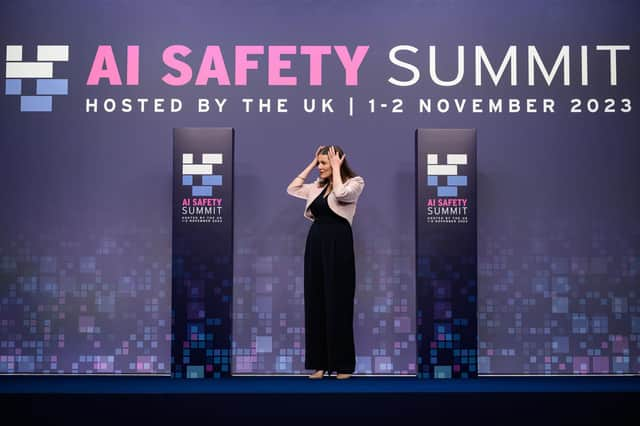Firms could see AI regulation creating innovation in future - Douglas Graham


As Rishi Sunak’s Global AI Safety Summit kicks off at Bletchley Park this week, regulation (or not) of artificial intelligence is a hot topic.
For businesses, it’s easy to see regulation and compliance as another AI risk to be navigated, alongside investment, obsolescence and cost overruns, while you chase the potential benefits of efficiency and productivity, cost reduction and enhanced customer service.
Advertisement
Hide AdAdvertisement
Hide AdHowever, since the financial crash led to increased regulation of financial services, at the University of Edinburgh we have been working with that sector to help them meet their obligations – to promote financial inclusion and equity, for example, or to follow environmental, social and governance criteria.
And our experience shows that, as well as bringing positive results for society, regulation can create new business models better suited to the future. We believe artificial intelligence, if handled responsibly, can usher in business innovations in the same way.
At the Edinburgh Futures Institute our mantra is Challenge. Create. Change. Challenge is about the process that’s needed before you can even bring in data sets and AI – what are you trying to do? What’s the real problem that needs solving? Then we bring together the right teams of academics, practitioners and business support to co-create and work towards positive societal change.
An example would be our work with NatWest Group, which Royal Bank of Scotland is a part of, such as the Centre for Purpose-Driven Innovation. Here we are helping the banking group use their huge, anonymised data sets for various purposes – to understand financial vulnerability, to model and test data science that can help prevent fraud, and to generate synthetic data to create AI models that are fit for purpose. The solutions we find will help banking customers but will also be shared to benefit society more broadly.
At the Centre for Business, Climate Change, and Sustainability (B-CCaS), based in the University of Edinburgh Business School, we are working with diverse disciplines such as geosciences and engineering on challenge-led research such as sustainable finance, using satellite data to monitor deforestation, and developing climate transition modelling. We are also helping a range of organisations factor data into long term planning through executive education, for example in our Climate Change Risk in Finance open course.
And at the Centre for Technomoral Futures, PhD researchers explore data and ethics in applied ways such as developing approaches to governance of autonomous systems, and a data ethics MOOC helps businesses tackle issues like racial bias in algorithms. The Bridging Responsible AI Divides Fellowships programme funds researchers to work with organisations from Ikea and Microsoft to the Scottish Parliament to help them develop responsible AI.
Our co-created, interdisciplinary method of working, combined with data fluency is, we believe, the way to tackle complex problems like harnessing data and AI for good. I’m sure Rishi Sunak and others will extol the need for innovation in this area, which means bringing together industry, research and education.
And if regulation is a popular theme this week, then we hope businesses will not be afraid – because working with universities can help you use it to your advantage, and improve people’s lives in the process. Future proofing businesses means future proofing society.
Douglas Graham is Edinburgh Innovations’ Director of Business Engagement based at the Edinburgh Futures Institute
Comments
Want to join the conversation? Please or to comment on this article.